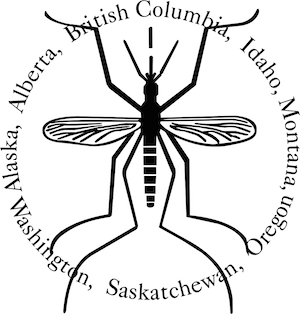NWMVCA membership has a diverse range of interests including operational control, public health, and research. The association began in the 1960s.
Integrated Mosquito Management
The Northwest Mosquito and Vector Control Association supports management of vector populations when and where necessary by means of an integrated program designed to benefit or to have minimal adverse effects on people, domestic animals, wildlife and the environment. This integrated pest management policy recognizes that vector populations cannot always be eliminated, but often must be suppressed to tolerable levels and that selection of scientifically-sound suppression methods must be based upon consideration of what is ecologically and economically in the long-term interest of humankind.
The following principles are to be followed:
- Vector control measures should only be undertaken when there is adequate justification based upon surveillance data.
- The combination of methods for vector control should be chosen after careful consideration of the efficacy, health effects, ecological effects and cost versus benefits of the various options; including public education, legal action, natural and biological control, elimination of the breeding sources, and pesticide applications.
- Vector breeding sources, whether natural or created by human activity, should be altered in such a manner as to cause the least undesirable impact on the environment.
- Pesticides and application methods should be used in the most efficient and least hazardous manner in accordance with all applicable laws, regulations and available scientific data. The registered label requirements for pesticide use should be followed. When choices are available among effective pesticides, those offering the least hazard to non-target organisms should be used. Pesticides should be chosen and used in a manner that will minimize the development of resistance in vector populations.
- Personnel involved in vector control should be properly trained and supervised, certified in accordance with relevant laws and regulations, and should keep current with improvements in management techniques through continuing education and/or training programs.


